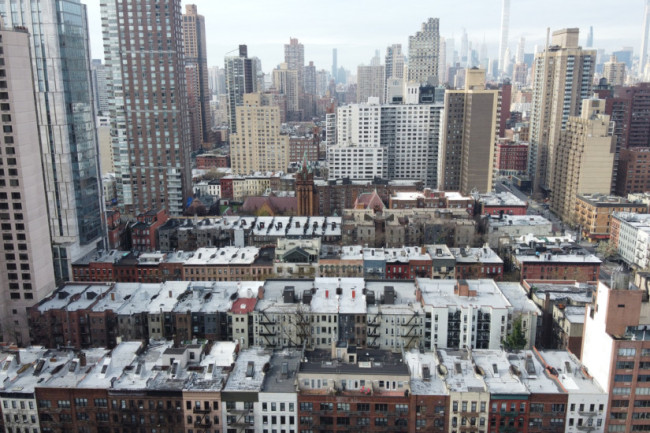Buy your rental building? A proposed law could help you and neighbors get first shot at being owners

If the tenant opportunity to purchase bill becomes law, owners who are selling their rental buildings would offer tenants the first chance to buy.
iStock
What if your rental apartment building was for sale and you and your neighbors had first crack at buying it? State lawmakers think many New Yorkers would jump at the chance and have sponsored a new bill, the tenant opportunity to purchase act, which would help renters team up and own a building collectively.
Whether you are looking for a rental or considering a lease renewal, it’s not an easy time to be a renter in New York City. Rents have increased over the past year, in some cases by 30 percent or more, and if you're scouring listings right now, in many cases landlords are offering apartments to the highest bidder.
Adding to the troubles of many low-income residents is an increase in private equity investors acquiring buildings—these are often groups less interested in providing stable housing and more interested in aggressively increasing a building’s earning power. It can often lead to displacement and gentrification as well as the loss of affordable housing.
To counter this, state lawmakers are pushing for more tenant protections including the good cause eviction bill and the tenant opportunity to purchase bill. The first proposal would prevent evictions unless there was good cause and would also cap rent increases. The second is sponsored by State Senator Zellnor Myrie, whose district includes parts of Brooklyn, and it would ensure property owners wanting to sell their multi-family rentals would have to offer the building to tenants first. The legislation specifically refers to private equity firms as a threat to the city's housing amid a homelessness crisis and a reason why the law needs to change.
“Tenants would have the right to be engaged first [to consider] purchasing the building within which they live,” says Sandra Lobo, executive director of Northwest Bronx Community and Clergy Coalition, an organization that supports the bill. "It would shift the building ownership into a collective ownership model and a tenant association would be one of the first immediate steps necessary to explore this opportunity,” she says.
So when a landlord offers a building for sale, renters would have the right to form a tenant union with legal rights to both the first offer and the first right of refusal to buy the building. Certain buildings are exempt including those that are government owned or where an owner has refinanced to hold onto the property.
Pre-approved non-profit housing providers would also be eligible to bid for the building in cases when tenants waive or assign their rights. Renters would also get the opportunity to match any offer by a third party.
The program depends on partnerships with tenant organizations to make sure those involved get the right support and guidance. Buying a building is a complicated process and there would be requirements for a landlord to provide disclosures about operating costs, necessary repairs, and loans against the building.
As an incentive for landlords to sell to tenants (or tenant organizations and non-profits) rather than outside investors, they would get tax breaks that wouldn't be available otherwise.
If the building changes hands under the proposed law, a tenant who chose not to buy would have the right to stay in their apartment at their current rent. There would also be restrictions—involving land trust leases and government oversight—to make sure the building continues to be affordable to future generations.
There's no guarantee the bill will pass. Landlords and real estate investors who oppose these moves frequently argue they have every right to operate their businesses without government regulation. It's an argument that's particularly strong in more conservative areas beyond the five boroughs.
You Might Also Like



























